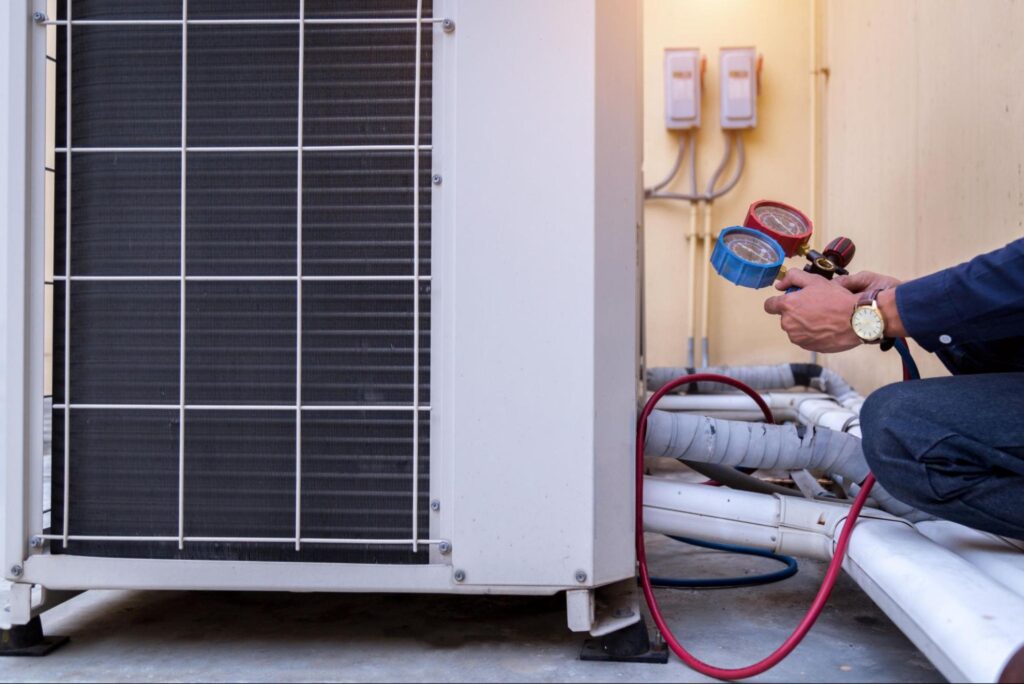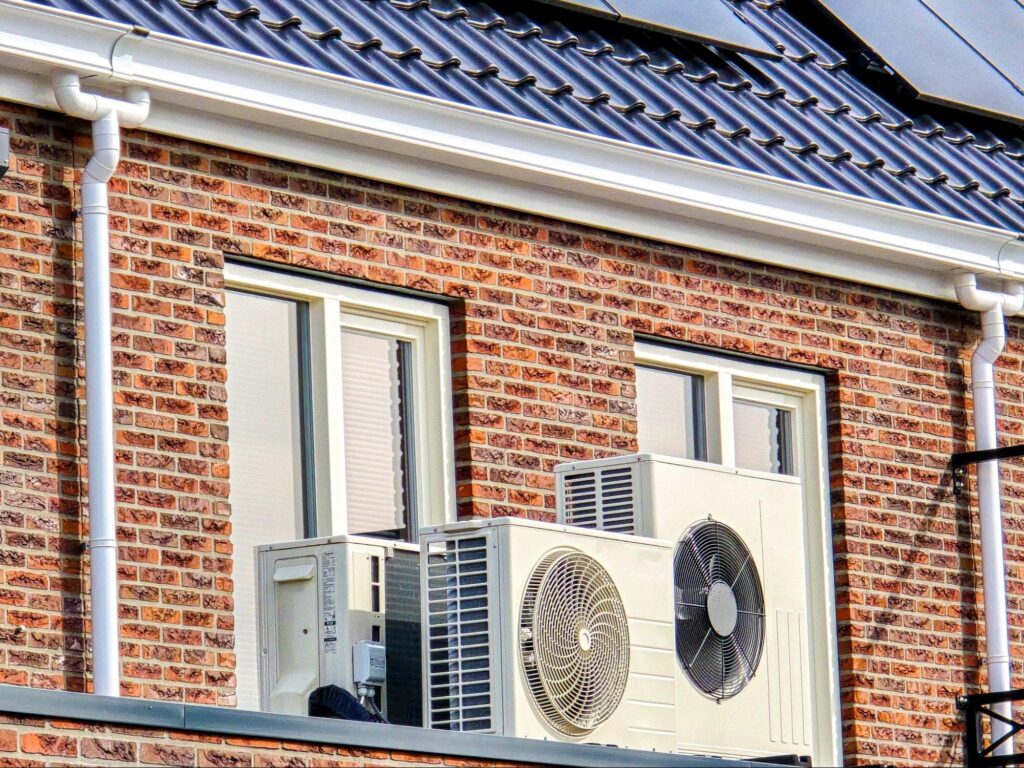Upgrading your HVAC system today can transform home comfort, slash utility bills, and improve indoor air quality in Michigan homes. As energy costs rise and older units struggle with efficiency, modern systems deliver measurable savings, healthier air, and quieter operation. This article outlines the signs you need an upgrade, explores energy-efficiency ratings like SEER2, details Michigan rebates, and explains how advanced filtration, smart thermostats, and eco-friendly refrigerants work. You’ll also learn how a new HVAC installation can boost property value, extend system lifespan, and support greener living.
By the end, you’ll know when an upgrade is right for your home and how SP Heating can guide you to a seamless consultation.
Why Should You Upgrade Your HVAC System Now?
Upgrading now reclaims comfort and cost savings by replacing aging equipment that loses efficiency over time. Older HVAC systems often underperform, requiring more energy to heat and cool your home, and increasing the risk of unexpected breakdowns during peak seasons. For example, a 15-year-old furnace may use 30 percent more fuel than a modern high-efficiency unit. Understanding these limitations sets the stage for exploring the specific triggers that signal it’s time for a new system.
What Are the Signs You Need a New HVAC System?
Persistent uneven temperatures, frequent cycling, and escalating repair bills indicate an aging HVAC unit. If rooms feel too hot or cold despite thermostat adjustments, your system’s capacity is degrading. Strange noises, foul odors from vents, or sudden humidity swings also reveal wear on key components. Recognizing these symptoms early prevents discomfort and higher energy expenses.
How Do Rising Energy Costs Affect Your Decision to Upgrade?
As Michigan electricity rates climb, inefficient HVAC systems amplify monthly bills. Each percentage drop in efficiency translates directly to higher utility costs during extreme summer and winter periods. By upgrading, you lock in superior performance that mitigates rate hikes and stabilizes your household budget.
What New Technologies Make HVAC Upgrades Worthwhile?
Modern HVAC systems integrate inverter-driven compressors, variable-speed fans, and multi-stage heating to adapt output precisely to your home’s needs. These innovations deliver consistent temperatures, reduce short-cycling, and prolong equipment life. Combining these advances with Energy Star certification ensures maximum efficiency and reliability.
What Is SEER2 and How Does It Impact Energy Savings?
SEER2 (Seasonal Energy Efficiency Ratio) measures cooling output per unit of electricity consumed under standardized conditions. A higher SEER2 rating signifies greater efficiency and larger cost reductions over a cooling season.
Below is a comparison of common SEER2 ratings and their estimated seasonal savings for an average Chicagoland home:
| SEER2 Rating | Efficiency Category | Estimated Annual Savings |
| 14 | Standard efficiency | Baseline |
| 16 | Mid-range efficiency | ~15 percent reduction |
| 20 | High efficiency | ~30 percent reduction |
| 24 | Premium efficiency | ~40 percent reduction |
Homes upgrading from SEER2 14 to SEER2 20 can expect around 30 percent lower cooling costs, which compounds over the system’s lifespan to substantial savings.
How Does Smart Thermostat Integration Enhance Energy Efficiency?
Smart thermostats learn household patterns, adjust setpoints automatically, and provide real-time usage insights.
- Remote temperature control via smartphone app
- Adaptive scheduling to avoid wasted heating or cooling
- Energy-use reports that highlight savings opportunities
Integrating a smart thermostat with your new HVAC system ensures optimized performance and ongoing cost reductions without manual intervention.
In What Ways Does a New HVAC System Improve Indoor Air Quality?

A modern HVAC installation addresses airborne contaminants through advanced filtration, UV air treatment, and humidity control. These enhancements not only capture dust and allergens but also neutralize microbes and balance moisture levels for a healthier home environment.
How Do HEPA Filters and Advanced Filtration Remove Allergens?
High-efficiency particulate air (HEPA) filters trap up to 99.97 percent of particles as small as 0.3 microns.
By preventing pollen, pet dander, and dust from circulating, advanced filters break the cycle of indoor allergens and reduce respiratory triggers.
What Role Do UV Lights Play in HVAC Air Purification?
Ultraviolet germicidal irradiation (UVGI) lamps installed in the HVAC ductwork irradiate passing air, deactivating bacteria, viruses, and mold spores. This continuous disinfection mechanism enhances overall air purity and helps prevent microbial growth on coils and drain pans.
How Does Humidity Control Contribute to Healthier Indoor Air?

Integrated humidifiers and dehumidifiers maintain optimal relative humidity (30–50 percent), which prevents mold proliferation and minimizes static electricity. Balanced moisture levels also improve comfort and protect woodwork and furnishings from warping.
What Are the Benefits of HVAC Zoning Systems for Personalized Comfort?
HVAC zoning splits your home into multiple temperature zones, each controlled by dedicated dampers and thermostats.
- Custom setpoints in individual rooms
- Reduced energy waste in unoccupied areas
- Enhanced comfort for diverse household preferences
Zoning ensures each space receives the ideal temperature while preventing energy loss in seldom-used rooms.
Why Are Modern HVAC Units Quieter and More Reliable?
Contemporary compressors and fans feature sound-dampening materials and variable-speed motors that operate at lower decibels. Improved manufacturing tolerances and robust components also decrease wear, resulting in fewer unexpected breakdowns and a reliable performance record.
How Does a New HVAC System Increase Your Property Value and System Lifespan?
Installing a high-efficiency HVAC system enhances curb appeal, attracts energy-savvy buyers, and offers a compelling return on investment. Modern units also incorporate durable parts and advanced diagnostics that extend operational life while reducing the need for frequent service visits.
What Is the Typical Lifespan of a Modern HVAC System?
Different HVAC system types offer varied lifespans:
- Central air conditioners: 15–20 years
- Gas furnaces: 15–25 years
- Heat pumps: 10–15 years
With regular maintenance and quality installation, premium units can approach or exceed these expectancy ranges.
How Do New Systems Reduce Repair Frequency and Costs?
New HVAC equipment leverages reliable components and self-diagnostic features to minimize unexpected failures. While older systems often trigger recurring service calls, homeowners can rely on prompt HVAC Repairs, but an upgrade dramatically cuts repair frequency and costs.
What Environmental Benefits Come from Upgrading to Modern HVAC Systems?
Modern HVAC technology reduces greenhouse gas emissions and uses eco-friendly refrigerants to shrink your home’s carbon footprint. By consuming less electricity and phasing out high-GWP chemicals, these systems support sustainable living without compromising comfort.
What Are Low-GWP Refrigerants Like R-454B and R-32?
Below are common low-global-warming potential refrigerants and their attributes:
| Refrigerant | GWP Rating | Environmental Benefit |
| R-454B | ~466 | 78 percent lower GWP than R-410A |
| R-32 | ~675 | Improved energy transfer and reduced charge volume |
Choosing these refrigerants aligns with impending EPA phase-out regulations and safeguards the climate.
Thinking About an Upgrade? Let’s Talk!

A new HVAC system isn’t just about staying cool in summer or warm in winter—it’s about saving energy, money, and stress. At S&P Heating, we guide you through the upgrade process from start to finish. Schedule your free consultation in Anchorville today, and let’s modernize your home’s comfort!
FAQ Section
How long does a typical HVAC upgrade take?
Most HVAC upgrades can be completed in a single day, though more complex installations (like zoning or ductwork updates) might take two to three. Your contractor should provide a timeline before work begins.
Do newer HVAC systems require less maintenance?
Generally, yes. While regular tune-ups are still important, new systems are designed with self-regulating components, advanced diagnostics, and improved durability. That means fewer unexpected repairs and more peace of mind.
Keep the Momentum Going!
Upgrading is just one piece of the energy-efficiency puzzle. Now, take the next step with hands-on advice in our next article:
👉 “Maximize Energy Efficiency in Anchorville: Expert HVAC Tips to Lower Your Energy Bills”



